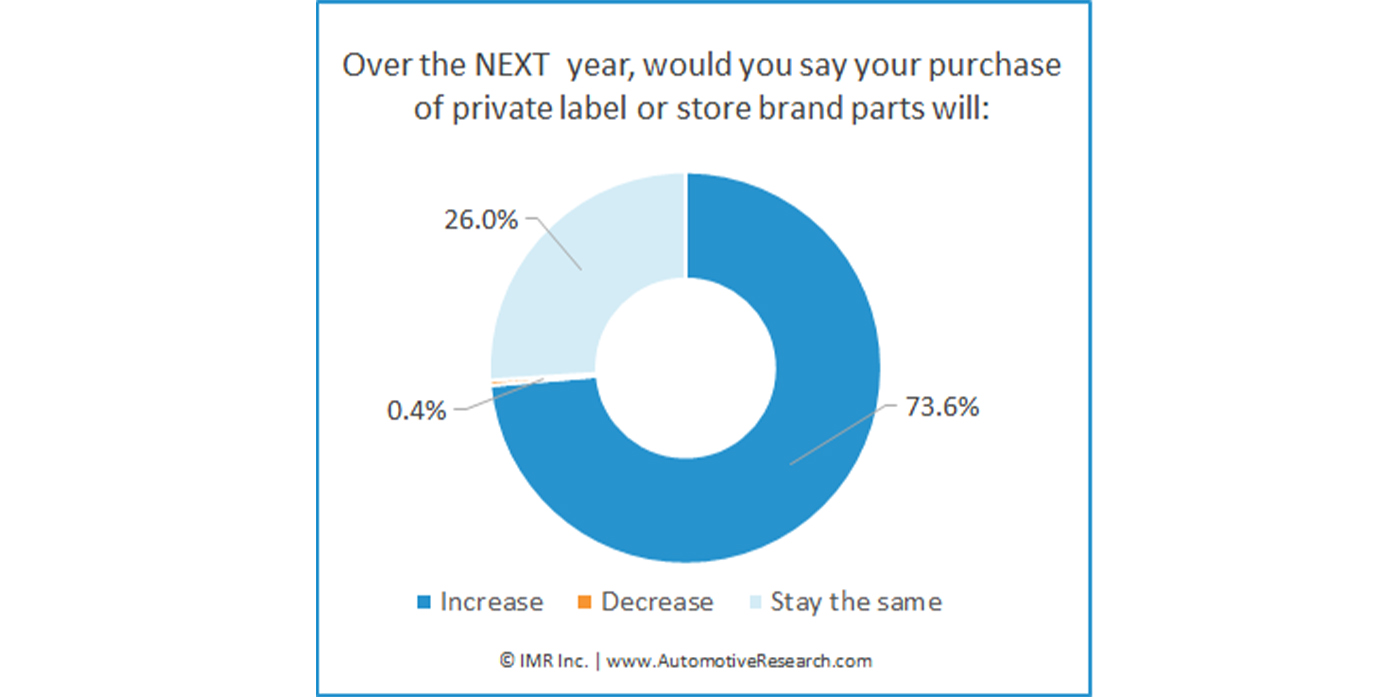Just a Handful of Negative Social Media Reviews Can Paint an Inaccurate Picture that Poisons the Sellability of Your Thriving Business — Develop an Action Plan Now to Avoid Scaring Off Buyers Later.
“I have bad news…” is my least favorite way of opening a discussion with the seller of a shop. But I had to do that recently when relaying an update to a husband and wife selling their California-based tire and auto service business.
Based upon all the financial algorithms used in my “Sellability Score” to determine a selling price for this high-volume shop, the owners and I had mutually agreed on a listing value of $1.1 million. In addition, the owners attributed their consistent sales to their reputation for honesty and loyalty of all their customers. Their business had been a “pillar of the community” for many years.
The shop almost immediately caught the interest of one of my potential buyer contacts. The owners were initially thrilled by the speed in which a qualified buyer had been found. The buyer made the requisite visits to the business, met the owners, reviewed the financial data, and signed an offer agreement, contingent upon due diligence. The owners had high hopes as they contemplated their future retirement of travel and leisure financed by the proceeds of the sale.
Then, the floor dropped out from under us.
The prospective buyer, in performing his due diligence, had checked the Google reviews for the shop, found a few negative ones and a 2.6 star rating, and backed out of the deal. That initiated my “bad news” call to the sellers.
Like many baby boomers, these retirement-age shop owners had not grown up like today’s generation in relying heavily on online social media for making purchasing decisions for services. They had never even checked their own business reviews and, once they did, were shocked to learn that just a few dissatisfied customers had posted their negative critiques of the shop for the world to see, rather than let them know personally.
The New Reality
The reality of doing business today is that customers who are dissatisfied with doing business with you, or perceived their experience as bad, are much more likely to review a business than a fully satisfied customer. That reality is not a fair one, but requires your attention.
Are you thinking of selling your shop? Have you regularly checked your shop’s social media reviews? Will those reviews negatively impact the Sellability of your business and what a potential buyer might offer?
Before discussing approaches to dealing with this new reality, perhaps it is important to point out how having too many negative reviews can actually impact your ability to sell your shop and offer prices you receive.
Whenever a shop comes on the market for sale there is a certain pool of qualified buyers who are looking to purchase a shop. The larger the buyer pool, the more chance that a buyer will be interested in a business for sale and want to make an offer. If some number of buyers in that pool eliminate a business for consideration due to poor online reviews, that means less buyers making offers. Multiple offers lead to competitiveness amongst buyers and less chance of a large discount off the asking price.
When considering the purchase of a business, buyers perceive negative social media reviews as an indication of a reason for potential future sales declines. And when it comes to them making a major investment in a business, that possibility is scary to them. To make it worse, if your shop already has a small sales decline over the past few years, even if totally unrelated to your reviews, some buyers will incorrectly conclude that the bad reviews are already negatively impacting business and the trend will continue.
Buyers also believe that current reviews will be visible on the internet and impact the shop’s score far into the future, so even if they buy the business and start getting positive reviews, the old ones will have an impact on their sales for a while.
Shop owners also need to be aware that 5%-10% of their customer base dies or moves away every year. It is a mathematical certainty that if you don’t regularly replace those customers with new ones, shops will have a decline in sales. Today’s younger generation is more apt to look at internet reviews when selecting an auto service shop, so positive reviews are critical to stabilizing and growing the customer base.
Buyers will likely pay a premium for a business that is showing sales increases over the past few years. If the business has great reviews, then the buyer is more inclined to think that the positive growth in sales and profits will continue.
As a shop owner, beware of the pressure to increase sales and the impact that it can have on internet reviews. Many shop owners considering a sale, especially those that have had a sales decline in the past year, will feel increased pressure to increase shop revenues, thinking it will lead to a higher sale price. They may shift that pressure to their service manager or service advisor to get more aggressive with upselling services to increase their average dollars per repair order.
Shop owners also need to be aware that increased sales aggressiveness can lead to customers complaining on the internet that they were pressured to buy extra services that they did not feel were needed or that the shop appeared dishonest. Potential buyers of your business are especially afraid of taking over an auto repair shop that has multiple reviews about overselling, especially if the shop has a huge ARO and they are concerned that sales and profits will decline if they try to neutralize the previous reviews with a selling approach that is very soft on pointing out the need for add-on services.
Viewing the Problem as an Opportunity
Perhaps the best way to approach this aspect of managing your business is to view the problem as an opportunity — an opportunity to leverage the power of the internet to positively impact your business.
Recent studies have shown that a whopping 72% of consumers will visit a business for the first time after reading a positive review online. That means that if your shop has a high customer satisfaction rating and many of those customers review your shop online, the positive reviews will outnumber the negative reviews in a sufficient ratio to negate the effect of the negative reviews.
As a business owner, you should know how your business is represented online by your customers. Knowing what information is being listed about your business and being aware of both positive and negative feedback is critical to managing your online reputation.
Yelp, Google, and (increasingly) Facebook, are all platforms that present customer reviews.
Let’s look first at the breakdown of each of these platforms, and then discuss differences and information that can help you to make a good decision on where to focus your marketing efforts.
Yelp
Yelp actively discourages its business users from asking for reviews. According to an article by Practical Ecommerce, Yelp was quoted as saying, “Let’s face it, most business owners are only going to ask for reviews from their happy customers, not the unhappy ones. Over time, these self-selected reviews create bias in the business listing — a bias that savvy consumers can smell from a mile away.”
Further, Yelp does not post all of the reviews your business gets. They have an algorithm that determines which reviews appear and in which order. This mostly depends on the user — it favors users that have given a lot of reviews, have photos and have Yelp “friends.”
For example, if one of your customers goes online to give your shop a review and they have just created a profile to do so, with no picture or information on their account, you can bet that Yelp is going to prohibit that from being posted.
Additionally, if you were to send a mass email out to your customer database and ask them for a Yelp review, and then a large number of people went online to write a review within the same week, you can guarantee that not all of the reviews will be posted.
Basically, according to Yelp, you should not be “asking” your clients for reviews. This can be pretty challenging for small businesses that are trying to legitimately build up their positive online presence. However, there are still some ways that you can get customers to review without making them feel pressured to write a positive review.
- Add a Yelp button to your website, which will prompt returning customers to review your shop.
- Let customers know you are on Yelp by posting something in your storefront and mentioning it to them when they pick up their vehicle.
- Add the Yelp Review button to your email signature.
Clearly, Yelp’s definition of reviews presents a challenge, but for good reason. Consumers see Yelp primarily as a review site. Yelp holds that they only want worthy and quality reviews and that customers can sense when reviews have been forced or plagiarized.
“I’ll just Google it” has become a permanent addition to our collective vocabulary over the past 10 years as information, services, products, dinner reservations, and even turn-by-turn directions have become accessible with just a few mouse clicks or thumb taps. In fact, according to Statista.com, Google continues to dominate the U.S. search engine market with more than 60% of all search queries performed.
So, how can your shop, and, more importantly, your shop’s website take advantage of Google’s reach to better understand and improve your online reputation and (literally) drive more customers your way and positively impact the perception of your shop to potential buyers?
Someone can write your shop a Google review as soon as they type your company name in on the search engine. You can also easily send your customers a link to your Google review page, by clicking on “write a review” yourself and copy/pasting the link into the body of an email. Just as with Yelp, Google will not tolerate fake reviews, but they don’t seem to have quite the stipulations that Yelp has as far as which reviews make the cut. In fact, they have an even better engine for predicting “fake” reviews than Yelp. This saves small business a lot of frustration, since their customers put a lot of time and effort into writing reviews — and it is helpful for the business to keep any reviews they can.
It has been predicted that Google reviews will eventually overtake Yelp reviews. They are actually fairly new to the review game, only launching Google Local Search in 2012, while Yelp has been around since 2004. Since Google has become king for online presence, it makes sense that they have enhanced their review features over the years, as well as integrated reviews from other sites into their review presentation.
Lastly, Google doesn’t have a problem with you asking your shop’s customers for reviews. You can also respond to the negative reviews you get, which accommodates or at least supplements you being able to stand up for your brand’s image in a very straightforward way.
Facebook is a very easy site for customers who follow your shop online to write a review and make their opinions known. What’s more, those who are following you are also likely to write quality reviews.
Facebook reviews are also incorporated into the Google platform, so with Facebook reviews, you really are getting two for the time and investment of one, so-to-speak. Facebook is really a platform for brand awareness, for pre/post-purchase exploration, and for branding support. Some people actually prefer to leave reviews on Facebook, since they are on the platform frequently anyway. In a recent survey by Review Trackers, it actually beat both Yelp and Google in user preference.
Action Steps
What can you do as the owner of an auto service shop to get more positive on-line reviews? Here are a few suggestions:
• The most obvious way to get reviews is to just ask for them and the best time to ask is when your shop has successfully finished the job, you are with the customer and you can see they are satisfied. Ask for some feedback. Don’t be afraid to say to clients, “Hey, if we helped you, we’d be grateful if you let other people know online.”
• Make it easy for customers to leave a review. A certain percentage of satisfied customers will take the time and effort to review your company on their own. But an even larger percentage are more likely to do so if you pave the way and make the process as easy and convenient as possible. Create some sample testimonials that they can use as a model, and give them an online form to complete on your site.
• As you meet your customers at the service counter in person, give out business cards that list your shop’s URL so they can easily locate review options. Place a feedback form on your website and post a status update on your shop’s Facebook page that asks how you’ve been doing. Both existing and new fans will see the post and hear about how pleased your customers are with your shop.
Offer minor incentives for review submissions. Give out incentives that make sense and relate to your business, such as percentage off coupons for future services.
• If you want to build up reviews quickly, try holding a contest. For a specified period of time, enter anyone who gives a review into a drawing for a more expensive and impressive item, such as an iPad or a gift card.
• Spotlight the customer. When you do receive positive reviews, highlight those customers who took the time to provide them. Ask if you can share their testimonials on your website and social media, and make the mention even more of an event by including a picture of the person with the testimonial.
Or go a step further and create a short video of you interviewing the satisfied customer. After the auto service has been completed, make a 30-second video personally thanking the customer for giving you the opportunity to work for him or her and make sure to mention the customer’s name. Then post the video to YouTube and send the customer a personal email with the link to the video. This is sure to get your customers talking about you in a very positive way.
• Follow a routine to maximize the number of positive reviews. Not everyone will get around to giving your shop reviews, even when you ask. But if you incorporate the task of making the request into your regular business routine, you will begin to accumulate an impressive amount of reviews. Create a process that you and all of your counter people will follow on each and every job. This will guarantee that you will have testimonials and referrals.
If, as a shop owner, you either have no clue or no time to deal with the online aspects of your business, consider hiring a service to help with social media and on-line reputation management.
The owners of the California-based shop who had received the “bad news” have since incorporated online management into their routine and have successfully begun a turnaround in the number of positive reviews buyers can view.
















